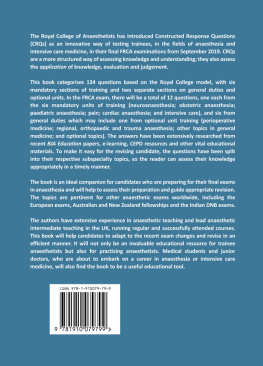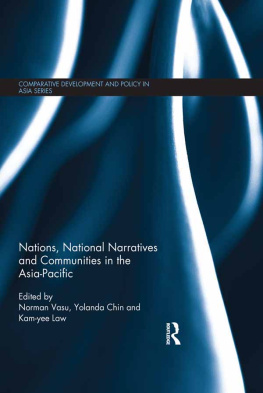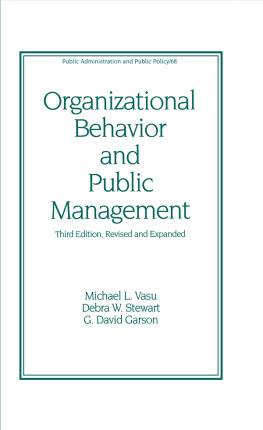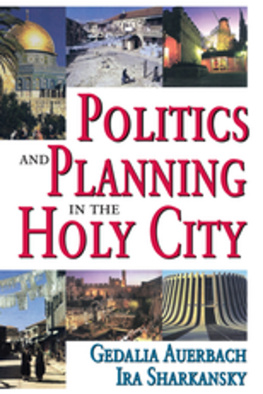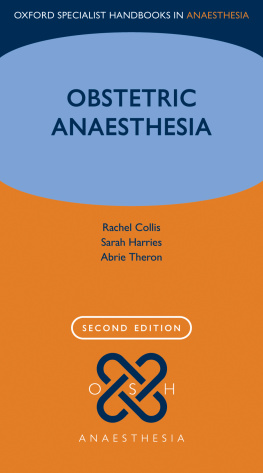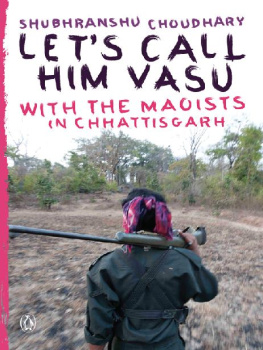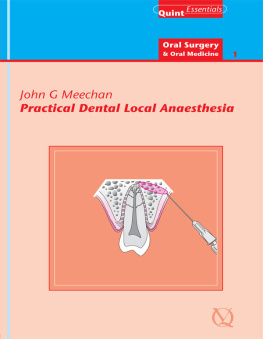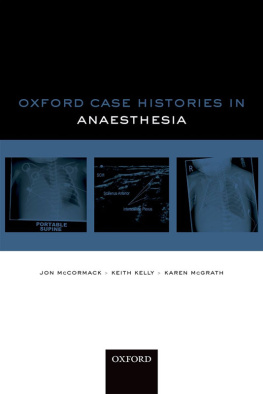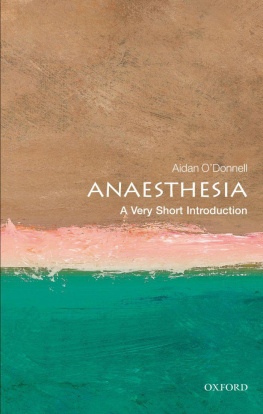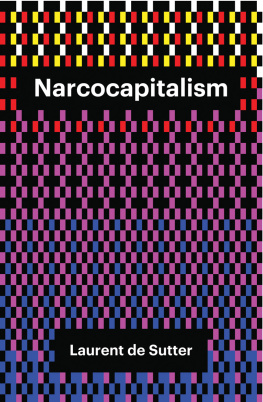Thanthullu Vasu - CRQs in Anaesthesia
Here you can read online Thanthullu Vasu - CRQs in Anaesthesia full text of the book (entire story) in english for free. Download pdf and epub, get meaning, cover and reviews about this ebook. publisher: TFM Publishing Ltd, genre: Children. Description of the work, (preface) as well as reviews are available. Best literature library LitArk.com created for fans of good reading and offers a wide selection of genres:
Romance novel
Science fiction
Adventure
Detective
Science
History
Home and family
Prose
Art
Politics
Computer
Non-fiction
Religion
Business
Children
Humor
Choose a favorite category and find really read worthwhile books. Enjoy immersion in the world of imagination, feel the emotions of the characters or learn something new for yourself, make an fascinating discovery.
- Book:CRQs in Anaesthesia
- Author:
- Publisher:TFM Publishing Ltd
- Genre:
- Rating:3 / 5
- Favourites:Add to favourites
- Your mark:
- 60
- 1
- 2
- 3
- 4
- 5
CRQs in Anaesthesia: summary, description and annotation
We offer to read an annotation, description, summary or preface (depends on what the author of the book "CRQs in Anaesthesia" wrote himself). If you haven't found the necessary information about the book — write in the comments, we will try to find it.
CRQs in Anaesthesia — read online for free the complete book (whole text) full work
Below is the text of the book, divided by pages. System saving the place of the last page read, allows you to conveniently read the book "CRQs in Anaesthesia" online for free, without having to search again every time where you left off. Put a bookmark, and you can go to the page where you finished reading at any time.
Font size:
Interval:
Bookmark:

 tfm Publishing Limited, Castle Hill Barns, Harley, Shrewsbury, SY5 6LX, UK Tel: +44 (0)1952 510061; Fax: +44 (0)1952 510192 E-mail: Editing, design & typesetting: Nikki Bramhill BSc Hons Dip Law Cover photo: iStock.com Anesthesia machine in hospital operating room Credit: lyosha_nazarenko; stock photo ID: 627431634 First edition: 2019 Paperback ISBN: 978-1-910079-79-9 E-book editions: 2019 ePub ISBN: 978-1-910079-80-5 Mobi ISBN: 978-1-910079-81-2 Web pdf ISBN: 978-1-910079-82-9 The entire contents of CRQs in Anaesthesia: Constructed Response Questions for Exams is copyright tfm Publishing Ltd. Apart from any fair dealing for the purposes of research or private study, or criticism or review, as permitted under the Copyright, Designs and Patents Act 1988, this publication may not be reproduced, stored in a retrieval system or transmitted in any form or by any means, electronic, digital, mechanical, photocopying, recording or otherwise, without the prior written permission of the publisher. Neither the authors nor the publisher can accept responsibility for any injury or damage to persons or property occasioned through the implementation of any ideas or use of any product described herein. Neither can they accept any responsibility for errors, omissions or misrepresentations, howsoever caused. Whilst every care is taken by the authors and the publisher to ensure that all information and data in this book are as accurate as possible at the time of going to press, it is recommended that readers seek independent verification of advice on drug or other product usage, surgical techniques and clinical processes prior to their use. The authors and publisher gratefully acknowledge the permission granted to reproduce the copyright material where applicable in this book.
tfm Publishing Limited, Castle Hill Barns, Harley, Shrewsbury, SY5 6LX, UK Tel: +44 (0)1952 510061; Fax: +44 (0)1952 510192 E-mail: Editing, design & typesetting: Nikki Bramhill BSc Hons Dip Law Cover photo: iStock.com Anesthesia machine in hospital operating room Credit: lyosha_nazarenko; stock photo ID: 627431634 First edition: 2019 Paperback ISBN: 978-1-910079-79-9 E-book editions: 2019 ePub ISBN: 978-1-910079-80-5 Mobi ISBN: 978-1-910079-81-2 Web pdf ISBN: 978-1-910079-82-9 The entire contents of CRQs in Anaesthesia: Constructed Response Questions for Exams is copyright tfm Publishing Ltd. Apart from any fair dealing for the purposes of research or private study, or criticism or review, as permitted under the Copyright, Designs and Patents Act 1988, this publication may not be reproduced, stored in a retrieval system or transmitted in any form or by any means, electronic, digital, mechanical, photocopying, recording or otherwise, without the prior written permission of the publisher. Neither the authors nor the publisher can accept responsibility for any injury or damage to persons or property occasioned through the implementation of any ideas or use of any product described herein. Neither can they accept any responsibility for errors, omissions or misrepresentations, howsoever caused. Whilst every care is taken by the authors and the publisher to ensure that all information and data in this book are as accurate as possible at the time of going to press, it is recommended that readers seek independent verification of advice on drug or other product usage, surgical techniques and clinical processes prior to their use. The authors and publisher gratefully acknowledge the permission granted to reproduce the copyright material where applicable in this book.
Every effort has been made to trace copyright holders and to obtain their permission for the use of copyright material. The publisher apologises for any errors or omissions and would be grateful if notified of any corrections that should be incorporated in future reprints or editions of this book. Printed by Gutenberg Press Ltd., Gudja Road, Tarxien, GXQ 2902, Malta Tel: +356 2398 2201; Fax: +356 2398 2290 E-mail: Contents Examinations are a stressful experience for many, but it is a recognised way of assessing our knowledge. The final FRCA exams from the Royal College of Anaesthetists have an international reputation and the College is committed to maintaining the highest possible standards for its exams. Recently, based on the 2015 exam review (as approved by the General Medical Council), the College introduced constructed response questions (CRQs) to replace the short answer questions. The reason for this change was that the College wanted to assess not only a candidates knowledge and understanding, but also the application of the knowledge and possibly evaluation and judgement.
CRQs help to achieve this goal. CRQs have more subsections and are specific in their required responses. The examiners can get an exact indication of what answers to accept or not. Candidates are required to read the questions and answer closely with regard to what has been specifically asked. We are what we repeatedly do.
Excellence, then, is not an act, but a habit. Aristotle Practising with past papers is vital in any exam preparation.
CRQs will be introduced to the exams from September 2019 and we are proud that this is one of the first books to be produced for this purpose. We have tried to simulate the Royal College papers and have extensively researched recent BJA Education papers, e-learning, CEPD resources and other vital educational materials to select the appropriate topics. This book tests with a similar pattern to that of the Royal College exams. One hundred and thirty-four questions have been produced in a similar ratio to the subsections in exams. In the FRCA exam, there will be a total of 12 questions, one each from the six mandatory units of training (neuroanaesthesia; obstetric anaesthesia; paediatric anaesthesia; pain; cardiac anaesthesia; and intensive care), and six from general duties which may include one from optional unit training (perioperative medicine; regional, orthopaedic and trauma anaesthesia; other topics in general medicine; and optional topics). If you have practised this entire book, you should have at least covered 11 FRCA question papers! To make it easy for the revising candidate, we have split the questions into their respective subspecialty topics, so the reader can assess their knowledge appropriately in a timely manner.
The answers are only an example and we advise candidates to use the references and resources for further update. The Royal College of Anaesthetists conducted CRQ pilot exams in January and June 2018; unfortunately, the pass rate (44.33%) was less than that expected from the similar short answer format (50-60%). The reasons assumed included: a failure to answer the question that was specifically asked, a poor knowledge of pathophysiology, a failure to prioritise answers, etc. If a question asks for any four causes, there will only be four blanks to fill the answers and candidates need to remember what to prioritise. Further, the pass rate was much less in pain, intensive care and obstetric topics. We strongly advise candidates to practise the questions in an exam-simulated environment and then reassess themselves with the model answers provided in the second half of the book.
I thank all my co-authors Mahesh, Pradeep, Lohita and Mehar who have worked hard to make sure that this book is a successful and useful aid to all anaesthetists. We thank you for purchasing this book and wish you all the best in your forthcoming exams and endeavours. Dr. Thanthullu Vasu
Consultant and Lead for Intermediate teaching
University Hospitals of Leicester NHS Trust
vasubangor@gmail.com Anaesthesia training in the UK has undergone many organisational and politically driven changes. The anaesthesia specialty has maintained its academic and professional standards and has emerged to be one of the disciplines that offers the safest clinical care. A career in anaesthesia is not for the faint-hearted.
Apart from achieving competency in different areas of training, trainees have to be successful in the demanding exams. The Royal College exams can be challenging because of the enormity of the curriculum and the high standards expected. Constructed response questions (CRQs) are a relatively newer way of assessment. CRQs are used for higher-order thinking skills such as analysis and evaluation. Commonly, these questions provide trainees with a prompt and require them to write a structured answer. The ability to extract information from the prompt forms the basis for answering the question.
The Royal College of Anaesthetists is in the process of moving away from short answer questions to CRQs. The objective is to assess not only the knowledge and understanding but also the application of knowledge and possibly evaluation and judgement. Dr. Vasu and his team have 0065xcellent academic and teaching credentials. They have been successfully running different exam preparation courses and have used their vast experience and resources to prepare this book on CRQs. In line with the examination syllabus, the book contains six core modules (neuroanaesthesia, obstetrics, paediatrics, cardiac anaesthesia, pain and intensive care), general modules and optional unit questions.
The second part of the book provides model answers to the questions in each module. tfm publishing has a rich experience in publishing high-quality medical books and has a track record of producing many successful exam preparation materials. This book on CRQs will be a valuable contribution and useful guide for anaesthesia trainees preparing for the highly competitive exam as well as experienced trainers actively involved in teaching. Dr. Shyam Balasubramanian
Font size:
Interval:
Bookmark:
Similar books «CRQs in Anaesthesia»
Look at similar books to CRQs in Anaesthesia. We have selected literature similar in name and meaning in the hope of providing readers with more options to find new, interesting, not yet read works.
Discussion, reviews of the book CRQs in Anaesthesia and just readers' own opinions. Leave your comments, write what you think about the work, its meaning or the main characters. Specify what exactly you liked and what you didn't like, and why you think so.

